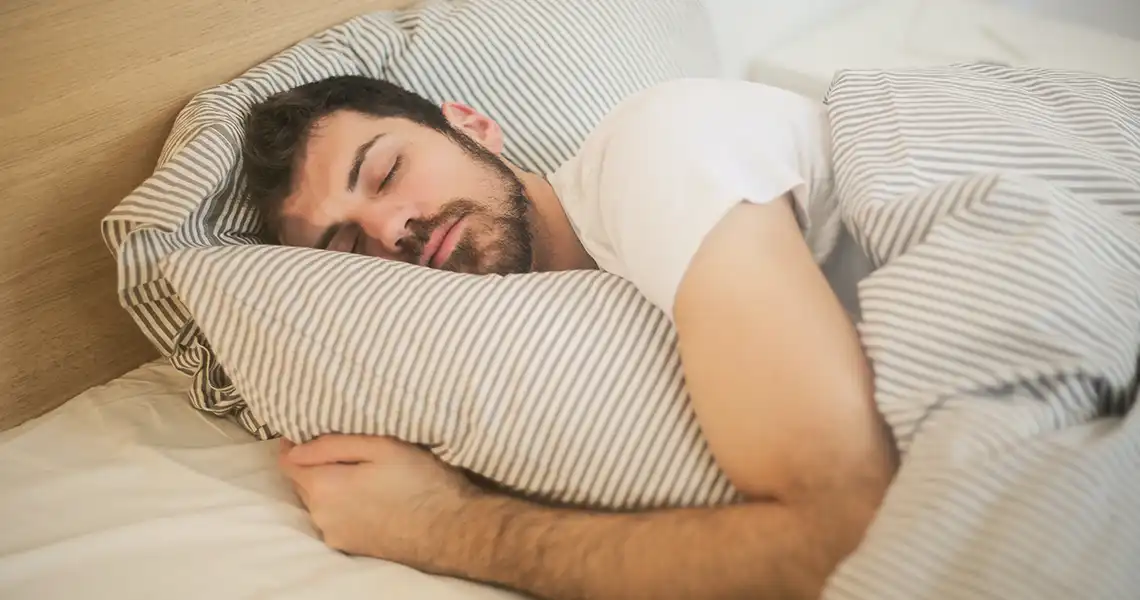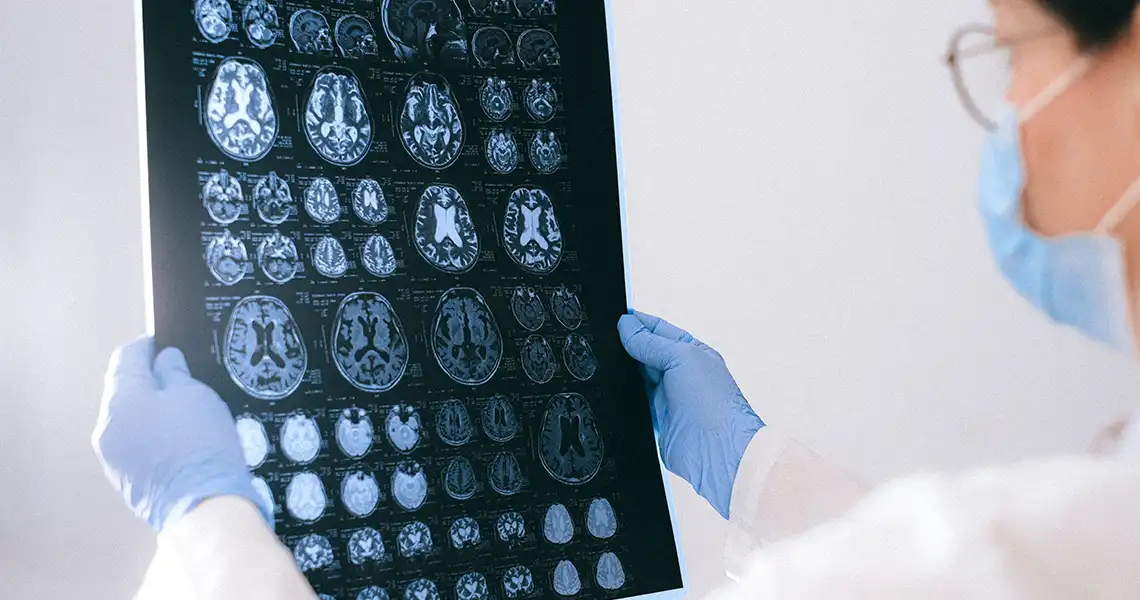
Why CBD is being used to treat sleep?
By now, you’ve probably heard of CBD, the plant-based compound being touted as a wide-ranging treatment for many conditions and ailments. While not quite the miracle drug that some will have you believe, the therapeutic potential of using CBD for sleep is an exciting prospect.
Of course, we must be cautious to make any definitive conclusions as of yet, as the research is still very much in its initial phase. However, there are some things that we do know.
CBD, also known as cannabidiol, is a non-psychoactive compound. This means that, unlike THC, CBD isn’t going to get you high.
The research on the benefits and risks of CBD is limited, but experts have been encouraged by the early evidence regarding the therapeutic potential of the substance. As research continues to expand, albeit at a slow-moving pace, so too does the interest in medicinal plant-based products.
One of the most common reasons people use CBD is to assist with symptoms of sleeplessness. As insomnia and closely-related symptoms affect countless people across the globe, the idea of a low-risk and effective treatment appeals to many.
Experts, however, have warned that we will need far more clinical trials and controlled studies before we can say anything with absolute certainty regarding using CBD for sleep.
What is insomnia?

Insomnia is a condition that affects numerous people all throughout the world. It refers to the inability to fall asleep or get meaningful rest. Those suffering from insomnia often struggle to fall asleep or find themselves waking up throughout the night.
A lack of proper rest can have immediate and long-term consequences for many, and can ultimately prove extremely harmful to your health. Experts believe that most adults need 7-8 hours of sleep per night.
Some of the immediate consequences of a lack of rest include:
- Drowsiness
- Extreme fatigue
- Increase in errors made
- Inability to perform focused tasks
- Increased anxiety and irritability.
Other associated risks include:
- Lower performance levels at work or school
- Increased risk of disease
- Potential for high blood pressure and heart disease
- Higher risk of accidents.
There are different ways to treat insomnia. These include behavioural therapy, prescription sleeping pills, and in more recent times, CBD and melatonin.
The research on using CBD for sleep

For years, CBD was prohibited as a substance throughout the world, leading to severely limited research and a lack of reliable information surrounding the compound.
In recent times, studies have started to pick up and the early evidence has justified the renewed effort into learning about cannabidiol as a treatment option.
There are currently a few existing studies, both animal and human, that have explored how CBD impacts sleep.
H3: The existing studies
One review from 2019 wrote that CBD may have therapeutic potential for the treatment of insomnia and sleeplessness. They further stated that CBD may hold promise for REM sleep behaviour disorder and excessive daytime fatigue.
A large case series exploring the effects of CBD found that it may hold benefits for anxiety-related disorders. As such, it can indirectly lead to an improvement in sleep duration and onset. The CBD sleep study wrote that most subjects using the cannabidiol daily saw improvements in sleep.
A 2017 review of the literature stated that medium to high-dose CBD is associated with an increase in the percentage of total sleep for users.
Now you may be thinking, “but if CBD makes me tired, will it impact my ability to focus?”. Fortunately, while CBD may prove effective as an aid for sleeplessness, it does not necessarily cause feelings of sedation.
There are clear promising signs regarding the use of cannabidiol. Regarding the amount to take, there are qualified medical practitioners that can guide you on how much. CBD for sleep is steadily growing as a treatment option and research continues to drive forward.
How CBD can help with sleep?

To understand how CBD works, we need to understand the endocannabinoid system (ECS). The ECS is a complex series of signals and receptors found in our bodies. The way it works can be divided into three distinct components, namely:
Endocannabinoids
Endocannabinoids refer to molecules created by the body that help internal functions run smoothly. They are naturally occurring neurotransmitters that the body produces as necessary.
Two of the main types of endocannabinoids known are:
- Anandamide (AEA or arachidonoyl ethanolamide)
- 2-archidonoyl glyerol (2-AG)
Research on the different endocannabinoids and their roles is still in its early phases.
Endocannabinoid receptors
These receptors are found on the surface of cells inside the body. Endocannabinoids attach to these receptors as a method of signalling to the ECS to respond.
The two primary receptors in the body are:
- CB1 receptors: Found in the central nervous system
- CB2 receptors: Found in the peripheral nervous system and in immune cells
The effects produced by the ECS are dependent on which receptor the endocannabinoids attach to.
Enzymes
The role of enzymes in the body is to break down the endocannabinoids after the ECS has performed the necessary response. As such, the ECS is no longer being signalled to act.
CBD
Experts believe that CBD produces its effects by interfering with the ECS. The idea is that cannabidiol prevents the enzymes from properly breaking down the endocannabinoids, and the ECS is never signalled to stop performing its response.
Thus, the ECS is able to produce a prolonged effect. With this, a more effective reduction in anxiety can occur and sleep is able to improve.
A qualified medical practitioner with experience in plant-based treatments can advise patients on what’s the best CBD strain for sleep. Additionally, a doctor can advise on how much CBD for sleep is necessary.
Summary
CBD, also known as cannabidiol, has surfaced as a plant-based treatment option for patients looking to relieve symptoms associated with a chronic condition.
One of the main reasons cannabidiol is prescribed is to treat symptoms of insomnia and sleeplessness. The dangers of inadequate rest are wide-ranging and there may be both immediate and long-term consequences.
While research on the use of cannabidiol is limited, there have been enough promising signs to justify the renewed effort into research. A few of the early studies have indicated that CBD may prove effective as a method of increasing sleep duration and helping patients fall asleep.
CBD works by interacting with the endocannabinoid system. Experts believe that cannabidiol stops the enzymes from adequately breaking down the endocannabinoids that have attached to the receptors.
For more information on the relationship between CBD, sleep, and insomnia, don’t hesitate to give us a call. Our qualified experts are more than happy to answer all of your cannabidiol-related queries.
